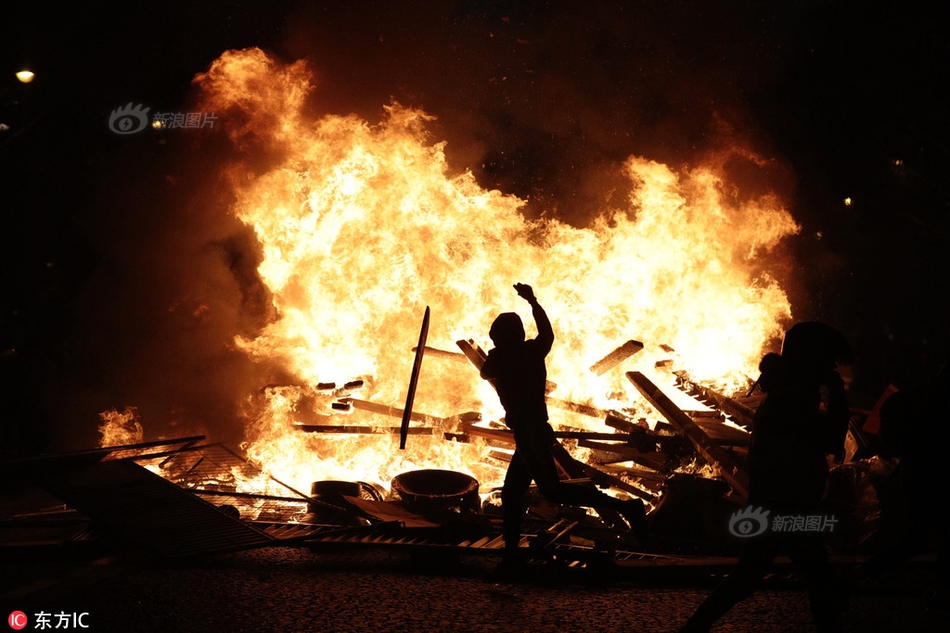【】
LONDON -- There is a moment in the Queens of Syriaplay in which a Syrian mother recalls when she was forced to leave her hometown after giving birth to her third child.
She was hiding in the third floor of a shabby building with her family when heavy shelling filled the night with a white light. Swiftly, the mother grabbed her children and rushed to escape, but when she arrived to the ground floor she suddenly realised she'd forgotten her daughter.
She ran up the stairs and found her daughter covered with glass, hurt, but alive. That's when she decided to leave Syria. As she fled her hometown, the mother turned around and saw the smoke billowing up the sky. Her home was on fire. In that moment, she realised she was probably never going back.
Her story is one of the many about exile, mourning and loss featured in Queens of Syria,currently playing at London's Young Vic, in which the worst refugee crisis in recent history blends with an ancient Greek text to create a soul-stirring experience.
An ancient tale
The play is a modern adaptation of Euripides' anti-war play The Trojan Women, and was born out of a therapeutic workshop with Syrian refugee women in Jordan.
 Credit: Vanja Karas
Credit: Vanja KarasSet in the years following the sack of Troy at the hands of the Achaeans, the play follows the fates of the women of the city after their husbands have been killed.
Echoes of the ancient tragedy still resonate today, after 2,500 years.
The play opens with a chorus of the 13 Syrian women mourning the destruction of Troy. "Troy is nothing but smoke," the chorus recites in a haunting parallel with the burning of Syrian cities and towns.
"It's exactly what I felt when I left Syria," Reem, one of the original cast members, told Mashable. "I saw the smoke rising up to the sky everywhere. Military scenes, soldiers, checkpoints all over the road."
Lighting a candle in the darkness
Reem, 25, appears in the play along with her mother, who encouraged her to take part in the production organised by Refuge Productions in Jordan.
"None of us are actors or dreamed of being actors, so it was very strange for us to do it," Reem said. "After I left Syria I felt disabled, that I couldn't do anything. This play empowered me, gave me a sense of self-confidence. I really opened up."
"I understood the power of the stage. Maybe it will not save lives, but at least it's like lighting a candle in the middle of the darkness."
 Credit: Vanja Karas
Credit: Vanja KarasThrough the universal language of theatre, Reem wants to fight the Western misconception that Syrians "are not people, just refugees."
"People need to understand we are people just like them. We had homes, families, streets, neighbourhoods, college - and that's all gone because of the war."
In Damascus, where she lived before the war, Reem was studying engineering. She had just three exams left. "In Jordan, there was no job, no education. My father, a lawyer, his office just burned out in Syria and became depressed."
Reem's family left the homeland because of her brother, who was just 16 when the war began, the age of military service.
"My father was really worried that he'd become either a killer or a dead man, that's why we ran to Jordan," she says.
"We're not acting, we're telling our stories"
Queens of Syriastarted as a drama therapy workshop created by Refuge Productions (RP) and evolved into an increased awareness project, a platform for the Syrian women to open up to the world.
"When we began in Jordan, we had no idea if anyone would turn up," RP's Charlotte Eagar said.
 Credit: Gianluca Mezzofiore
Credit: Gianluca Mezzofiore"But the next day 50 women showed up. They were so nervous on the first day, clutching their children. The second day, 50 more. We had to turn some away."
As another cast member, Sham, recalls, taking part to the project was at first just a way to escape boredom in a country that doesn't allow you to work if you're a refugee.
"We came from the Troy of this age - or even worse"
"When we arrived in Jordan, we had nothing - and nothing to do either. It's illegal to work there. We were just sitting in the houses, waiting for nothing," she said.
"With the play, we discovered a place where we can talk about our suffering, what we want and what we're dreaming," Sham, 37, who has four children and left a pharmacy and beautiful house in Damascus, said. "We're not acting, we're telling our real stories."
"Doing the play impacted our lives in so many ways - now we are all Trojan," Maha, another cast member, said.
The scent of jasmine
In the play, the Syrian women alternate in monologues personal stories or stories of their family members to songs of loss and exile. The monologues are blended with a chorus delivering lines from Queen Echuba, who was enslaved along with other Trojan women.
At one point, one by one, the actresses move to the foreground, clutching a paper with their identity card and an object they brought from their homeland. Then, the women recall what they miss the most about Syria.
 Credit: vanja karas
Credit: vanja karasA bedroom, overlooking the lush garden where the scent of jasmine and rose pour in. A swing, where the children used to play. A balcony on the river, where the waves break at dawn. One recalls leaving Damascus at dawn and breathing for the last time the air of the homeland, not knowing if and when she'll be able to come back.
After the evocative recollection, the women tear down the paper and go back to their seat.
"We're not here to entertain you or to sing a song."
"We're not here to entertain you or to sing a song. I have an anger and a message to pass on. We came from the Troy of this age - or even worse," Reem addresses the stage.
What makes Euripides' play so distinctive is that it features an all-women cast.
"You cannot dream of a company of actors so articulate, intelligent, politically engaged," said the director Zoe Lafferty. "They've so clear in mind what they want to say to UK audience: it's not easy task to take some of life experiences and speak on stage."
In clips played throughout the play, the cast cogitates about their relationships with the Trojan women.
Hecuba, Cassandra and Andromache are all strong women ready to die, go insane and fight for their homeland. Just like them, the Syrian women just dream of going back and rebuilding Syria.
"We are the Queens of Syria."
Have something to add to this story? Share it in the comments.
相关文章
 Amazon's Echo made controlling music with your voice easy-peasy, but its sound quality could be a lo2026-01-29
Amazon's Echo made controlling music with your voice easy-peasy, but its sound quality could be a lo2026-01-29
Justin Bieber's right Yeezy sneaker is for sale on eBay
For sale, Bieber shoe, worn briefly.On Saturday, Justin Bieber inexplicably tossed his Yeezy sneaker2026-01-29
The notoriously cheerful baby Asahd Khaled wept at the sight of Justin Bieber
At the tender age of eight months, Asahd Khaled is not only an executive producer but a bonafide cel2026-01-29
Which species will win or lose as Antarctica's ice melts?
Scientists are closely watching Antarctica's ice sheets as human-driven global warming melts the con2026-01-29
These glasses hide a fitness tracker on your face
The last time a company tried popularizing wearable tech embedded in glasses, most notably with Goog2026-01-29
Over 20,000 people lit up a park to celebrate pride
More than 20,000 Singaporeans came to Pink Dot, the city's annual LGBTQ festival this year, accordin2026-01-29

最新评论